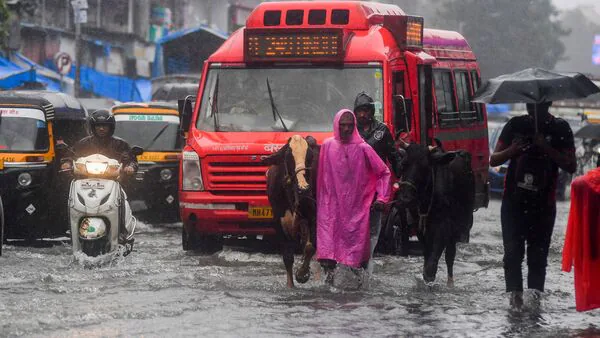The recent heavy rains in Maharashtra, especially in Mumbai, have brought both benefits and problems. While the rains are needed for refilling water supplies and supporting agriculture, they also bring health risks due to waterlogging and more humidity. Standing water and warm weather can lead to more diseases, making people worried about an increase in illness cases.
Waterborne Diseases
A major worry during heavy rains is waterborne diseases. Illnesses like cholera, typhoid, and hepatitis A can spread fast through dirty water. Flooding and waterlogging in cities can make drinking water unsafe, raising the risk of these infections. Good sanitation and clean water are key to preventing waterborne diseases.
Vector-Borne Diseases
Leftover stagnant water from heavy rains is perfect for mosquitoes to breed, which can lead to more mosquito-borne illnesses. Diseases like dengue fever, malaria, and chikungunya thrive in humid conditions. People are advised to use mosquito repellents, wear long sleeves, and remove standing water near homes to cut the risk of mosquito bites.
Respiratory Infections
Heavy rains often raise humidity levels, which can worsen respiratory issues. Dampness helps mold and fungi grow, causing allergies and respiratory infections. People with asthma or other breathing problems are especially at risk. Keeping homes well-ventilated and dry is important, and seeing a doctor if respiratory symptoms occur is crucial.
Skin Infections And Mumbai Rains
The monsoon’s moisture and humidity can cause various skin infections. Fungal infections like ringworm, athlete’s foot, and eczema increase in these conditions. Personal hygiene, keeping the skin dry, and wearing breathable clothes can help prevent skin problems. Persistent skin issues should be checked by a dermatologist.
Gastrointestinal Disorders During Rains
Dirty food and water during heavy rains can raise the risk of stomach issues. Bacterial infections like gastroenteritis and food poisoning are common in the monsoon. It’s important to practice good food hygiene, wash fruits and vegetables well, and eat freshly prepared food from trusted sources to avoid these problems.
While the monsoon provides relief from the heat, it also brings health challenges. Knowing about potential diseases and taking precautions can help reduce the risks. Authorities and healthcare providers need to educate the public on hygiene, sanitation, and disease prevention during the monsoon season.







